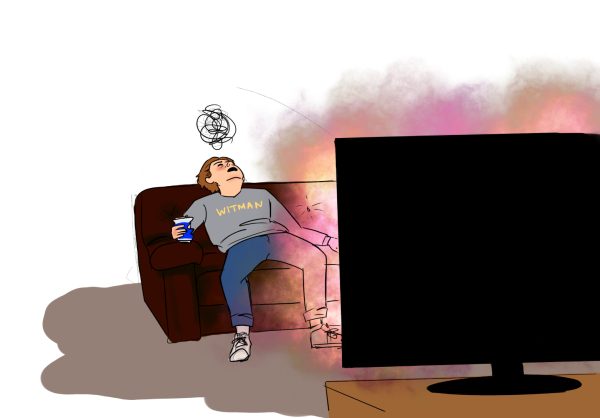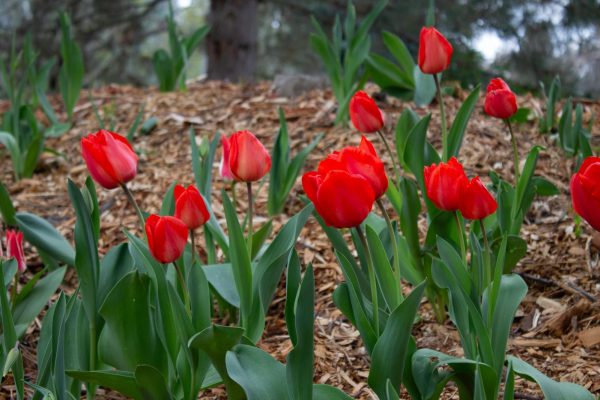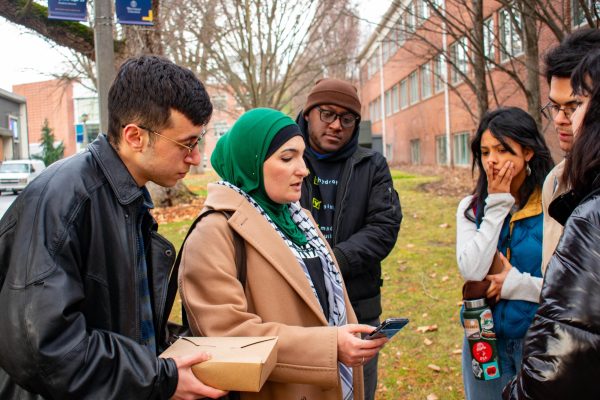A Q&A Preview of Power and Privilege Workshops
February 15, 2016
Classes will be cancelled this Thursday, Feb. 19 for Whitman’s annual Power and Privilege Symposium, which provides an opportunity for students to pause and consider the historical and contemporary ways power has mobilized oppression and inequality. Student, faculty and staff speakers will host workshops on a wide variety of topics throughout the symposium’s four informational sessions. The Pioneer talked to one speaker from each session to get a taste of what we can expect from this year’s event.
Session 1 (9:30-10:30a.m.): Disposable Lives: Climate Change Impacts and Justice in Nepal
Jessie Austin, Maxey 106
Why did you choose to talk about climate justice in Nepal?
“My fall semester junior year I spent abroad in Nepal, and when I came back I was in an environmental justice class…For my final paper, I looked into the specific situation in Nepal in terms of how they are going to be impacted by climate change, and how capable they are to adapt to those impacts…What I found really stayed with me, both personally and…as a citizen of a developed country… I think it is a really important message and the Power and Privilege Symposium provided a great opportunity for me to talk about it.”
What are some ways those with privilege can help create change?
“In terms of our responsibility, I think it’s mostly financial support. I’ll also be talking about the climbing industry in Nepal … Our actions affect other people, and [global issues are present] on the local, individual, immediate scale.”
What do you think will be the most interesting thing about your presentation?
“I’m not sure how many people are aware of how disproportionate the responsibility for climate change and the impacts of climate change are distributed…Sixty-three percent of carbon emissions [come] from only six countries…and other countries like Nepal bear a negligible responsibility for climate change and emissions, but they are going to suffer most of the impacts, and they have the least resources to deal with those impacts…It might make people start thinking in a different way.”
What do you hope people will take away from your workshop?
“I talk about the Paris Agreement this past December which was this very celebrated conference where all the countries in the UN talked about how to address climate change. Unfortunately, on [this] global scale, climate justice is not being addressed…and if people become more aware of the issue, then we might, as communities, demand more from our leaders, hold ourselves responsible for what we have done and actually create change in the world.”
Session 2 (10:45-11:45 a.m.): The Depiction of Disability in Literature and Film
Rich Hinz, Maxey 106
Why did you choose to address the portrayal of disability in the media?
“Well, I am personally interested in the topic. I have cerebral palsy and have watched movies and television for years…and very seldom see a depiction of people like me in television or film, or even in literature, historically. And when you do see those characters they tend to fall into pretty stereotypical roles. And to further that, when there is an individual with a particular disability in a movie or television show, it’s incredibly rare that it’s played by an actor with any kind of disability…It’s played by an able-bodied actor basically mimicking whatever disability happens to be displayed.”
What prompted you to speak about disability at the Symposium this year?
“Right now in the film and television industries there’s a huge conversation…about the need for diversity…and [when] they list the things that make people diverse, that conversation seldom, if ever, includes the topic of disability. If you look at things in terms of people with disabilities, they’re virtually non-existent. You can find examples…Robert David Hall on “CSI” has been on the show for years [and] he’s a double amputee. The character itself has nothing to do with that, he just so happens to be [a double amputee]…which is what I would like to see more [of].”
How does people’s understanding of disability compare to other focuses of diversity, such as race?
“It’s much easier, I think, for society to discount disability than it is for society to discount race, mainly because we’ve been having conversations about race way longer than we’ve been having conversations about disability…They are both groups that are obviously marginalized by society.”
What do you hope people take away from your presentation?
“To consider that everyone has differences, and just because some differences are classified in a certain way doesn’t mean that they have less value or less import to society, or even less cultural relevance…Disability is disability because of the way society is structured.”
Session 3 (1:30-2:30 p.m.): Outdoor Access For All?

Whitney Wood, Maxey 104
Why did you choose to talk about access to outdoor recreation?
“Last semester I was working with the OP as an outreach coordinator, and [Assistant Director of Outdoor Programs] Stuart Chapin and I thought a lot about barriers to outdoor recreation. I have been leading OP trips [for a long time], and I’ve been thinking a lot about who comes on OP trips, who feels welcome and how to make it feel more welcoming. [Incorporating] this into Power and Privilege and [making] it one of the discussions [will] hopefully get some other people in there who maybe haven’t thought about it, or have a lot to say, and create more discussion about it.”
So the workshop will be a dialogue on how to address this issue?
“It’s mostly a discussion…People should be prepared to listen, and learn and talk…I think people hopefully have something to say and contribute.”
What are some of the challenges associated with this topic?
“I want to make sure that everyone has the opportunity to use the outdoors, but I don’t want to push it on people. And what I value isn’t necessarily what other people value, so how do we reconcile those two things?…We don’t want to tokenize people and create diversity just for diversity’s sake without supporting the people who are there. Those [challenges] require a lot of thought.”
What do you hope people take away from your workshop?
“I would like people to start thinking and talking about the issue, and reevaluate whether they’ve thought it’s been an issue…A lot of the discussion will be talking about moving forward, and what can be done…at Whitman, [considering] what we want our “outdoorsy” culture to look like. I’m still working on the right answers for myself…and hopefully we can come to conclusions.”

Session 4 (2:45-3:45 p.m.): #LetMeTakeASelfie
AnnaMarie McCorvie, Maxey 108
Why did you choose to talk about selfies?
“I chose it because I love the really hard topics that we deal with at Power and Privilege, but sometimes it’s hard to apply them to our everyday lives at Whitman…Most of us have Snapchats or Instagrams or Facebooks, so it’s just really applicable.”
What do you think will be most interesting for students?
“I think one of the interesting things is that a lot of people don’t like selfies, and feel like they are contributing to a beauty standard that they don’t agree with…I think a lot of good conversations will come up about toeing the line between using them as powerful tools and using them as a ridiculous thing that everyone does.”
What’s an example of selfies being used as powerful tool?
“A lot of what I’m going to be talking about is the Blackout movement, which is the movement where people of color, especially black people online, take selfies to sort of reclaim their own beauty standards. [It’s done] to say that they are sick of seeing magazines full of white people, and they’re sick of seeing newsfeeds on blog sites full of white people, and just want to get their beauty out into the world through the internet.”
Are you focusing on any particular social media platforms?
“Oh, I’m going to hit ‘em all up.”
What do you hope people will take away from your workshop?
“[I hope more people will begin] thinking more complexly about beauty…and recognizing that you get to decide who you think is beautiful and if you think you’re beautiful. It doesn’t have to be a cultural standard that you live up.”








